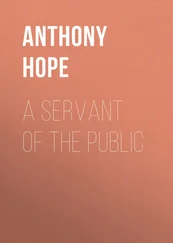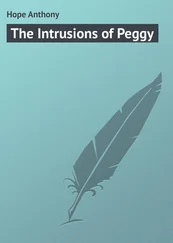Anthony Hope - Double Harness
Здесь есть возможность читать онлайн «Anthony Hope - Double Harness» — ознакомительный отрывок электронной книги совершенно бесплатно, а после прочтения отрывка купить полную версию. В некоторых случаях можно слушать аудио, скачать через торрент в формате fb2 и присутствует краткое содержание. ISBN: , Жанр: foreign_prose, на английском языке. Описание произведения, (предисловие) а так же отзывы посетителей доступны на портале библиотеки ЛибКат.
- Название:Double Harness
- Автор:
- Жанр:
- Год:неизвестен
- ISBN:http://www.gutenberg.org/ebooks/42222
- Рейтинг книги:4 / 5. Голосов: 1
-
Избранное:Добавить в избранное
- Отзывы:
-
Ваша оценка:
- 80
- 1
- 2
- 3
- 4
- 5
Double Harness: краткое содержание, описание и аннотация
Предлагаем к чтению аннотацию, описание, краткое содержание или предисловие (зависит от того, что написал сам автор книги «Double Harness»). Если вы не нашли необходимую информацию о книге — напишите в комментариях, мы постараемся отыскать её.
Double Harness — читать онлайн ознакомительный отрывок
Ниже представлен текст книги, разбитый по страницам. Система сохранения места последней прочитанной страницы, позволяет с удобством читать онлайн бесплатно книгу «Double Harness», без необходимости каждый раз заново искать на чём Вы остановились. Поставьте закладку, и сможете в любой момент перейти на страницу, на которой закончили чтение.
Интервал:
Закладка:
"I tell you! Facts will convince you sooner than I could, Grantley."
He was really very reasonable from his own point of view, both reasonable and patient. Mrs. Raymore conceded that. And he was also quite consistent in his point of view. She remembered a phrase from his letter which had defined what he was seeking – "a completion, not a transformation." He was pursuing that scheme still – a scheme into which the future wife had fitted so easily and perfectly, into which the actual wife fitted with more difficulty. But he was dealing with the difficulty in a very good spirit and a very good temper. If the scheme were possible at all – given Sibylla as she was – he was quite the man to put it through successfully. But she reserved her opinion as to its possibility. The reservation did not imply an approval of Sibylla or any particular inclination to champion her; it marked only a growing understanding of what Sibylla was, a growing doubt as to what she could be persuaded or moulded into becoming. Mrs. Raymore had no prejudices in her favour.
And at any rate he was still her lover, as fully, as ardently as ever. Deep in those fastnesses of his nature were his love for her, and his pride in her and in having her for his own. The two things grew side by side, their roots intertangled. Every glance of admiration she won, every murmur of approval she created, gave him joy and seemed to give him tribute. He eagerly gathered in the envy of the world as food for his own exultation; he laughed in pleasure when Christine Fanshaw told him to look and see how Walter Blake adored Sibylla.
"Of course he does – he's a sensible young fellow," said Grantley gaily. "So am I, Christine, and I adore her too."
"The captive of your bow and spear!" Christine sneered.
"Of my personal attractions, please! Don't say of my money-bags!"
"She's like a very laudatory testimonial?"
"I just wonder how John Fanshaw endures you."
He answered her with jests, never thinking to deny what she said. He did delight in his wife's triumphs. Was there anything unamiable in that? If close union were the thing, was not that close? Her triumphs made his – what could be closer than that? At this time any criticism on him was genuinely unintelligible; he could make nothing of it, and reckoned it as of no account. And Sibylla herself, as he had said, he could always soothe.
"And she's going on quite all right?" Christine continued.
"Splendidly! We've got her quietly fixed down at Milldean, with her favourite old woman to look after her. There she'll stay. I run up to town two or three times a week – do my business – "
"Call on me?"
"I ventured so far – and get back as soon as I can."
"You must be very pleased?"
"Of course I'm pleased," he laughed, "very pleased indeed, Christine."
He was very much pleased, and laughed at himself, as he had laughed at others, for being a little proud too. He had wanted the dynasty carried on. There was every prospect of a start being made in that direction very prosperously. He would have hated to have it otherwise; there would have been a sense of incompleteness then.
"I needn't tell a wise woman like you that there's some trouble about such things," he went on.
"No doubt there is," smiled Christine. "But you can leave most of that to Sibylla and the favourite old woman," she added a moment later, with her eyes on Grantley's contented face, and that touch of acidity in her clear-toned voice.
Between being pleased – even very much pleased indeed – and a little proud over a thing (notwithstanding the trouble there is about it), and looking on it as one of the greatest things that Heaven itself ever did, there is a wide gulf, if not exactly of opinion, yet of feeling and attitude. From the first moment Sibylla had known of it, the coming of the child was the great thing, the overshadowing thing, in life. Nature was in this, and nature at her highest power; more was not needed. Yet there was more, to make the full cup brim over. Her great talent, her strongest innate impulse, was to give – to give herself and all she had; and this talent and impulse her husband had not satisfied. He was immured in his fastness; he seemed to want only what she counted small tributes and minor sacrifices – they had appeared large once, no doubt, but now looked small because they fell short of the largest that were possible. The great satisfaction, the great outlet, lay in the coming of the child. In pouring out her love on the head of the child she would at the same time pour it out at the feet of him whose the child was. Before such splendid lavishness he must at last stand disarmed, he must throw open all his secret treasure-house. His riches of love – of more than lover's love – must come forth too, and mingle in the same golden stream with hers, all separation being swept away. Here was the true realisation, foreshadowed by the fairy ride in the early days of their love; here was the true riding into the gold and letting the gold swallow them up. In this all disappointments should vanish, all nipped hopes come to bloom again. For it her heart cried impatiently, but chid itself for its impatience. Had not Mrs. Mumple waited years in solitude and silence outside the prison gates? Could not she wait a little too?
It need hardly be said that in such a position of affairs as had been reached Mrs. Mumple was much to the fore. Her presence was indispensable, and valued as such, but it had some disadvantages. She shared Sibylla's views and Sibylla's temperament; but naturally she did not possess the charm of youth, of beauty, and of circumstance which served so well to soften or to recommend them. The sort of atmosphere which Mrs. Mumple carried with her was one which should be diffused sparingly and with great caution about a man at once so self-centred and so fastidious as Grantley Imason. Mrs. Mumple was lavishly affectionate; she was also pervasive, and, finally, a trifle inclined to be tearful on entirely inadequate provocation – or, as it appeared to any masculine mind, on none at all, since the tendency assailed her most when everything seemed to be going on remarkably well. Her physical bulk too was a matter which she should have considered; and yet perhaps she could hardly be expected to think of that.
Of course Jeremy Chiddingfold, neither lover nor father, and with his youthful anti-femininism still held and prized, put the case a thousand times too high, exaggerating all one side, utterly ignoring all the other, of what Grantley might be feeling. None the less, there was some basis of truth in his exclamation:
"If they go on like this, Grantley'll be sick to death of the whole thing before it's half over!"
And Jeremy had come to read his brother-in-law pretty well – to know his self-centredness, to know his fastidiousness, to know how easily he might be "put off" (as Jeremy phrased it) by an intrusion too frequent and importunate, or a sentiment extravagant in any degree or the least overstrained. Too high a pressure might well result in a reaction; it would breed the thought that the matter in hand was, after all, decidedly normal.
But altogether normal it was not destined to remain. Minded, as it might seem, to point the situation and to force latent antagonisms of feeling to an open conflict, Mistress Chance took a hand in the game. On arriving at the Fairhaven station from one of his expeditions to town, Grantley found Jeremy awaiting him. Jeremy was pale, but his manner kept its incisiveness, his speech its lucidity. Sibylla had met with an accident. She had still been taking quiet rides on a trusty old horse. To-day, contrary to his advice and in face of Grantley's, she had insisted on riding another – the young horse, as they called it.
"She was in one of her moods," Jeremy explained. "She said she wanted more of a fight than the old horse gave her. She would go. Well, you know that great beast of a dog of Jarman's? It was running loose – I saw it myself; indeed I saw the whole thing. She was trotting along, thinking of nothing at all, I suppose. The dog started a rabbit, and came by her with a bound. The horse started, jumped half his own height – or it looked like it – and she – came off, you know, pitched clean out of her saddle."
Читать дальшеИнтервал:
Закладка:
Похожие книги на «Double Harness»
Представляем Вашему вниманию похожие книги на «Double Harness» списком для выбора. Мы отобрали схожую по названию и смыслу литературу в надежде предоставить читателям больше вариантов отыскать новые, интересные, ещё непрочитанные произведения.
Обсуждение, отзывы о книге «Double Harness» и просто собственные мнения читателей. Оставьте ваши комментарии, напишите, что Вы думаете о произведении, его смысле или главных героях. Укажите что конкретно понравилось, а что нет, и почему Вы так считаете.












